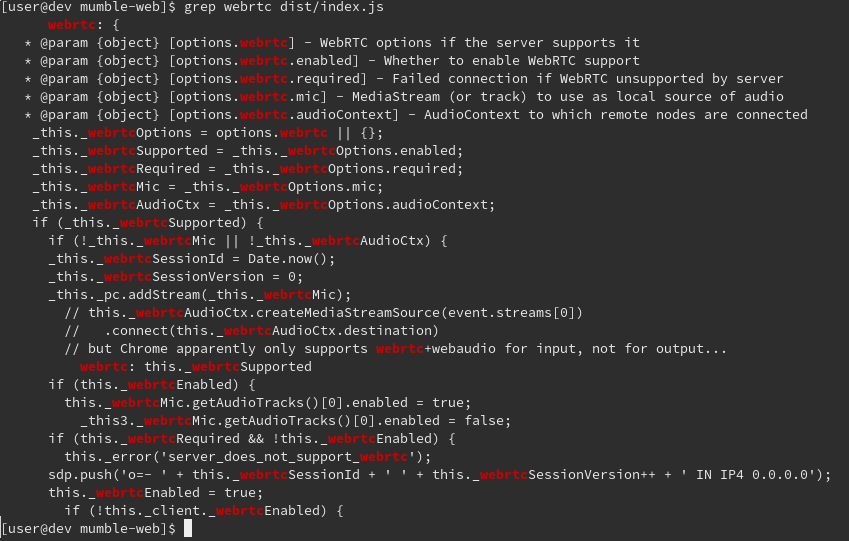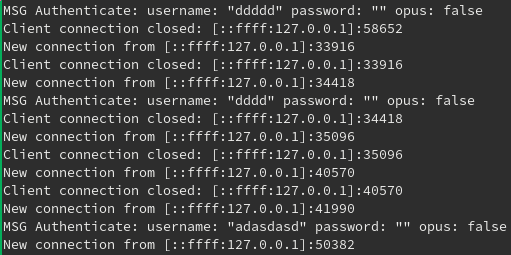I wonder what the plans for the webrtc branch are?
Long term I'd like to merge the webrtc branch into master as I find the current mumble-web implementation fundamentally flawed (see the "Motivation" section of the thread linked below). I haven't been working on mumble-web in general for the last year, only been accepting PRs, hence why there have been changes on master but not on webrtc.
Do I understand it correctly that the browser's opus codec is used with the webrtc branch?
Yes, it delegates all its audio processing (except VAD) to the browser, which should make it far more resilient to performance issues. For technical details see: https://github.com/mumble-voip/mumble/issues/3561


I wonder what the plans for the webrtc branch are? (or if there are any). While master had a couple of commits recently, the last changes in webrtc are from February last year.
Do I understand it correctly that the browser's opus codec is used with the webrtc branch?